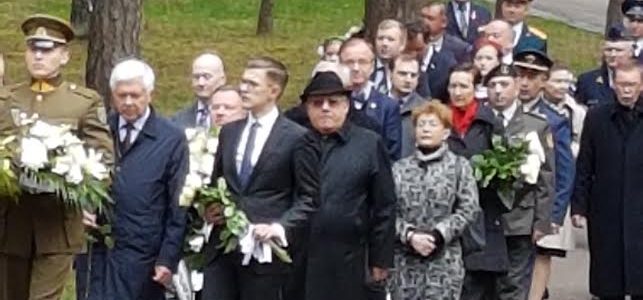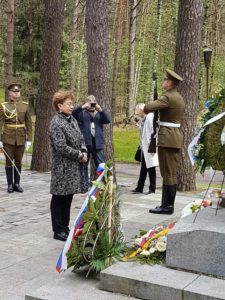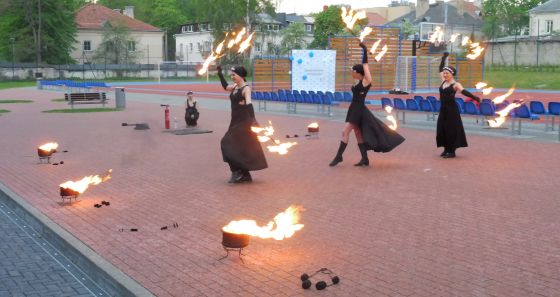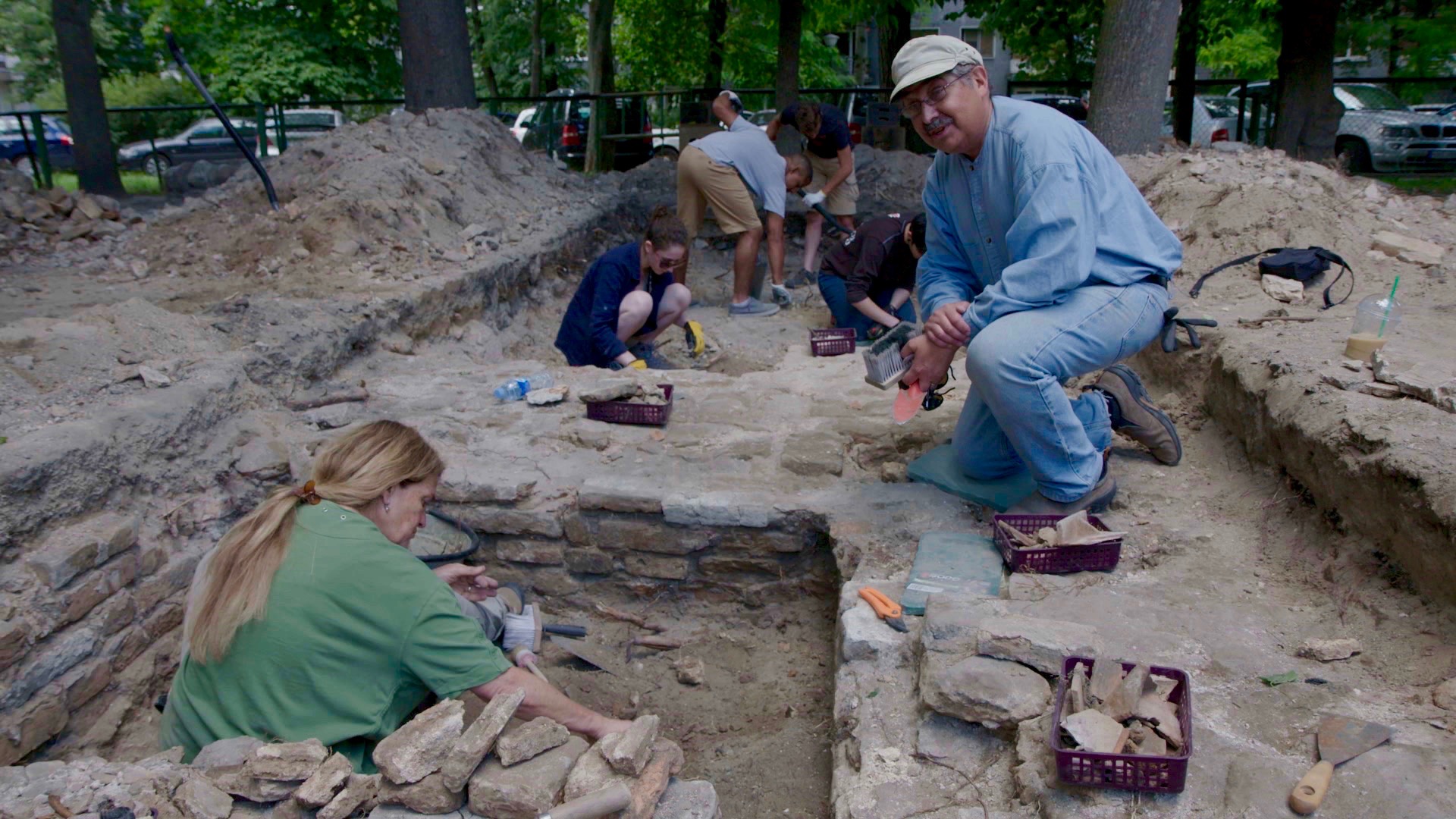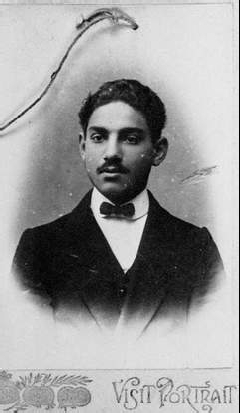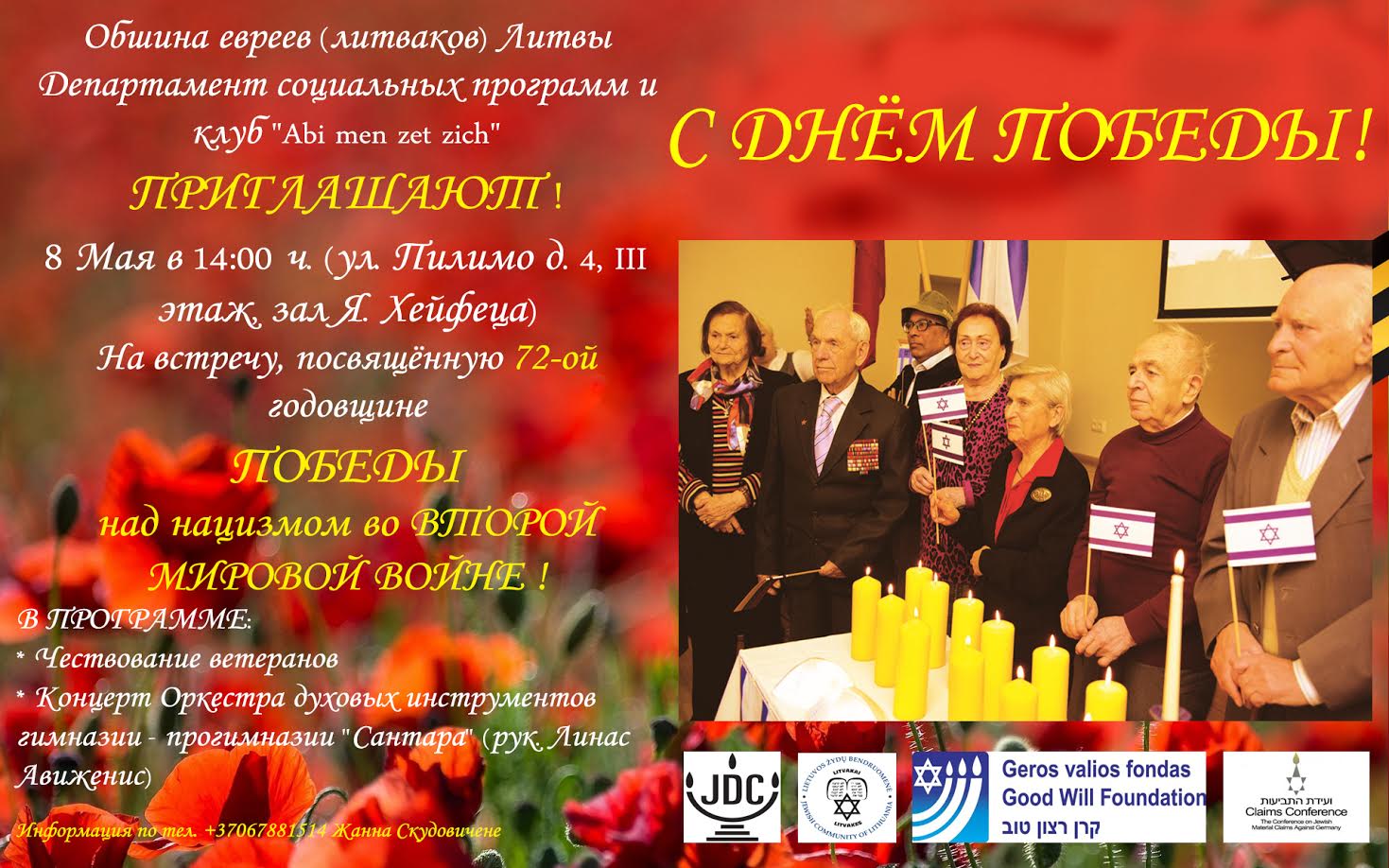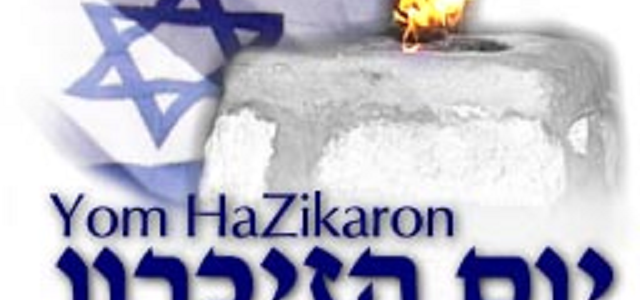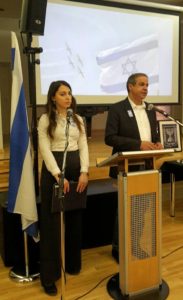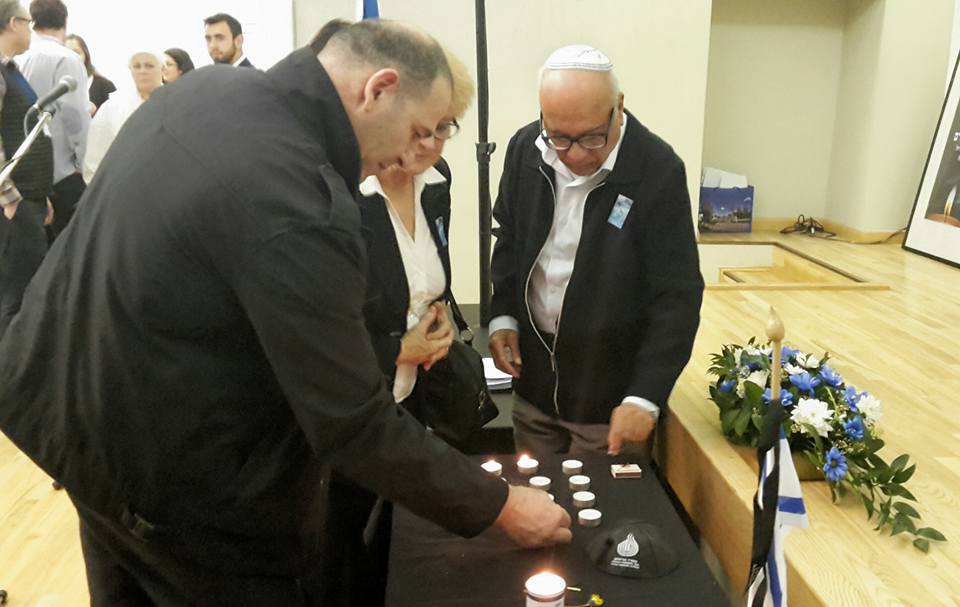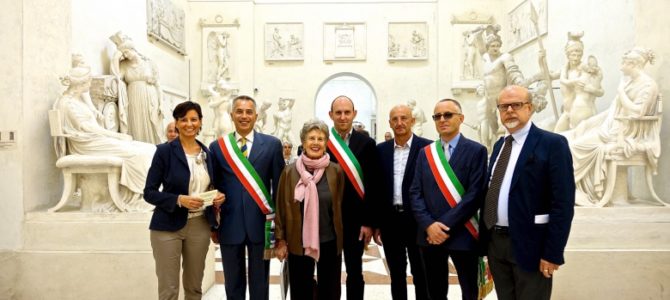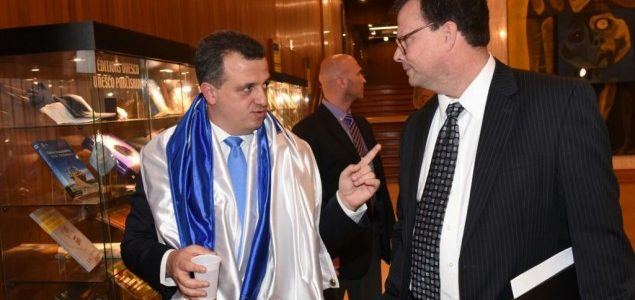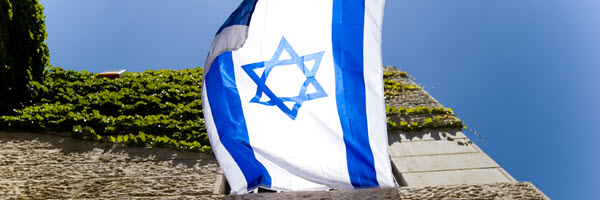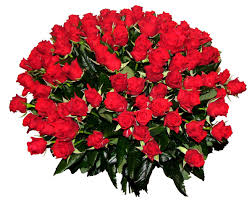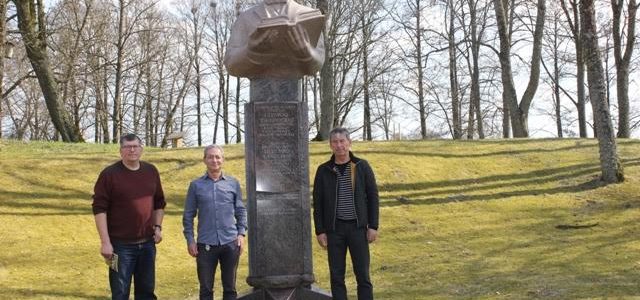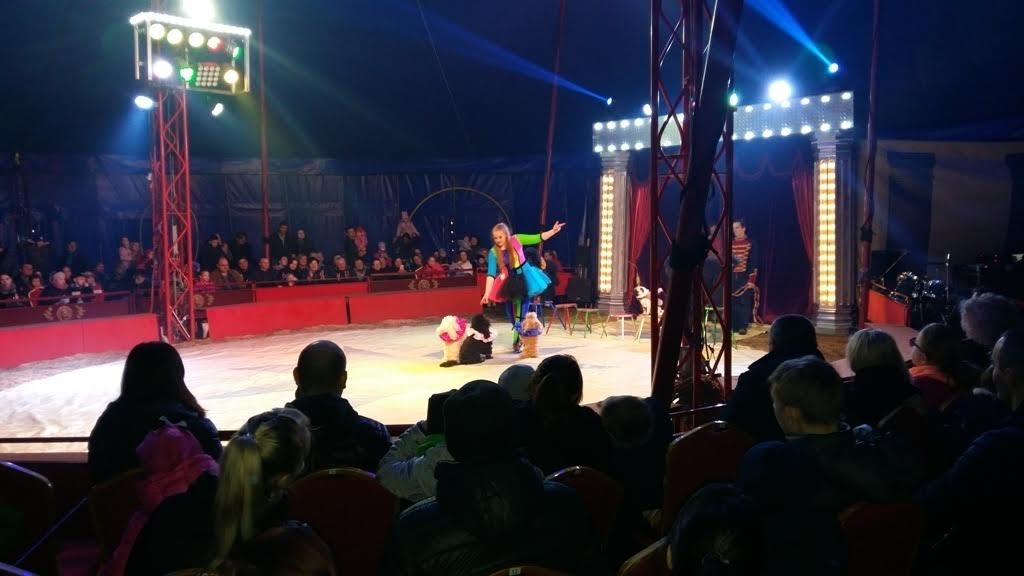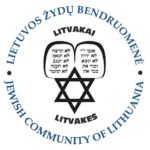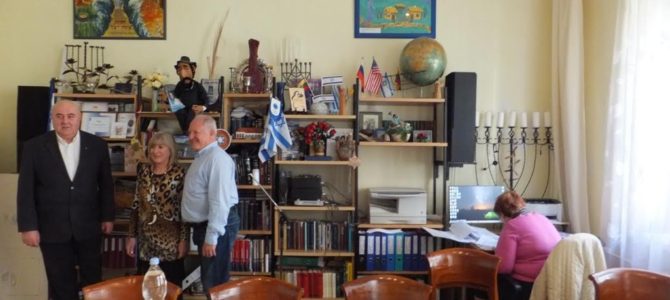
South African attorneys Jonathan and Sheli Schlosberg visited the Panevėžys Jewish Community where chairman Gennady Kofman told them about the history of the Jews in the Panevėžys region, community events to teach Jewish history and other social, educational and cultural activities.
There are over 30 mass murder sites where Jews were shot and mass graves in the Panevėžys district. The guests were interested in the history of the Jewish graveyard in the city of Panevėžys. They made use of the opportunity to visit the cemetery site and learned in 1966 the cemetery was destroyed and the headstones used to decorate the walls of the Juozas Miltinis Drama Theater there.
Panevėžys Jewish Community chairman Gennady Kofman presented small token gifts to the guests including Jewish calendars and star of David ornaments. The guests expressed gratitude for the comprehensive survey he provided and wished success to the Panevėžys Jewish Community.


